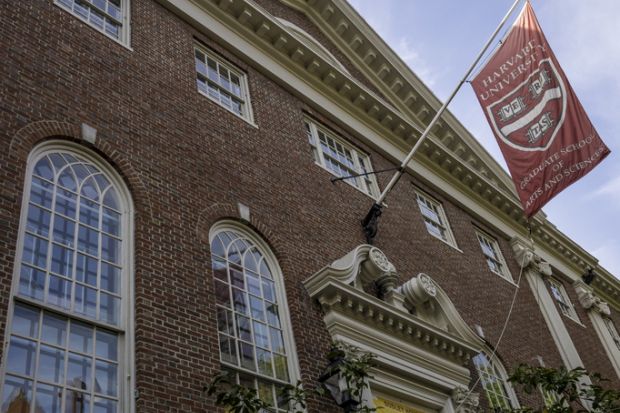Harvard University’s chief diversity officer has been accused of dozens of instances of plagiarism, largely in her doctoral dissertation, in a case mirroring the partisan complaints that prompted the Ivy League institution’s president to resign a month ago.
The allegations against the administrator, Sherri Ann Charleston, appear to include repeated instances where multiple sentences from her writings align closely or identically with those of other authors, often her husband, LaVar Charleston, the deputy vice-chancellor for diversity and inclusion at the University of Wisconsin-Madison.
Harvard, in an initial response, offered praise for Dr Charleston’s work as its chief diversity and inclusion officer, and said it would follow its usual process for handling such complaints, which is not conducted in public.
Outside experts said that while they could not immediately assess the seriousness of the complaints against Dr Charleston, they were alarmed by the now-materialising promises of conservative activists to seek out such cases as a way of weakening public support for their perceived political enemies in US higher education.
Such complaints could reflect both scholarly misbehaviour and an unbalanced and partisan campaign against academia, said Susan Harmeling, a Harvard alumnus and clinical professor of inclusive global leadership, business ethics and entrepreneurship at Arizona State University.
The evidence in the Charleston case does look “rather egregious, especially the copying of her own husband’s research”, Professor Harmeling said. At the same time, she said, Dr Charleston clearly appeared to have been targeted due to her position.
“I also wonder how many administrators with advanced degrees who have been hired by universities nationwide would hold up to this type of scrutiny, whether they are black, white or any other race,” Professor Harmeling said.
Even if the complaints against Dr Charleston have validity, said David Johns, the chief executive officer of the National Black Justice Coalition, a national civil rights organisation, they should be understood as part of the centuries-old effort to maintain white supremacy in the US.
“It is really about acknowledging that those people are waging war to continue to hold on to perceived power, and that they’re threatened by not only individuals but institutional work that gets us closer toward a lot of these ideals” of societal equality, Dr Johns said.
Dr Charleston, a historian and attorney, came to Harvard in 2020 after serving as assistant vice-provost for diversity, equity and inclusion and chief affirmative action officer at Wisconsin, where she also earned her law degree. She earned her doctorate in history from the University of Michigan.
The plagiarism allegations against her were first published in the Washington Free Beacon, an online publication of the Centre for American Freedom, a conservative advocacy group, without identifying a source of the underlying investigation.
The report came one month after Harvard’s first black president, Claudine Gay, resigned just six months into her presidency, largely due to clamour among conservative US lawmakers and wealthy Harvard donors who cited plagiarism allegations and her reluctance to agree that student protests against Israeli military attacks on Palestinian civilians amounted to campus tolerance of antisemitism.
Harvard stopped short of fully investigating the complaints against Professor Gay after several members of the university’s governing board, under pressure from donors, expressed opposition to her remaining in office.
A leading conservative activist, Christopher Rufo, then offered to pay $10,000 (£8,000) to anyone – likely working with the aid of artificial intelligence tools – finding any more such plagiarism cases at Harvard and other elite US universities.
That overall campaign against academia continues to be waged on multiple levels. Just as the case against Dr Charleston was getting publicised, one of Harvard’s biggest donors, billionaire hedge fund manager Kenneth Griffin, announced that he will join other major university benefactors in pausing donations to Harvard, citing university positions regarding Israel and diversity among his concerns.
Irene Mulvey, president of the American Association of University Professors, said: “Legitimate accusations of plagiarism are serious matters that should be investigated by the institution using scholars with the relevant expertise and full information. Anonymously filed accusations found by running software that detects word duplication do not amount to a legitimate investigation.
“Limited information without expert analysis being spewed anonymously into the public sphere makes a legitimate investigation difficult if not impossible. One wonders if the goal of the unknown accuser is a legitimate investigation or ruining a person’s reputation and career?”
Register to continue
Why register?
- Registration is free and only takes a moment
- Once registered, you can read 3 articles a month
- Sign up for our newsletter
Subscribe
Or subscribe for unlimited access to:
- Unlimited access to news, views, insights & reviews
- Digital editions
- Digital access to THE’s university and college rankings analysis
Already registered or a current subscriber? Login










